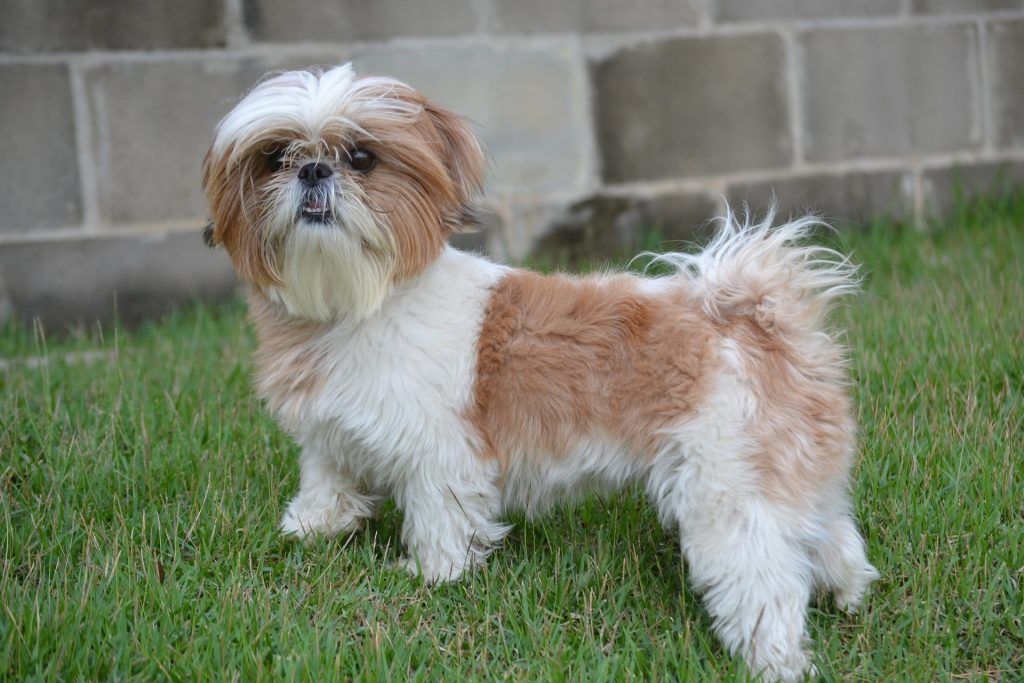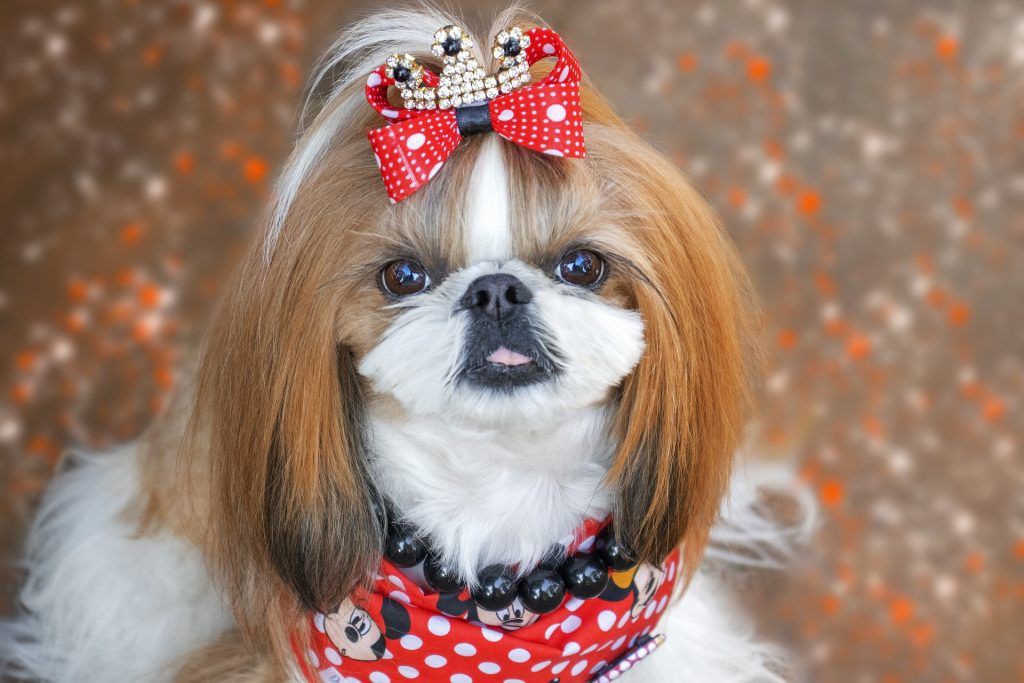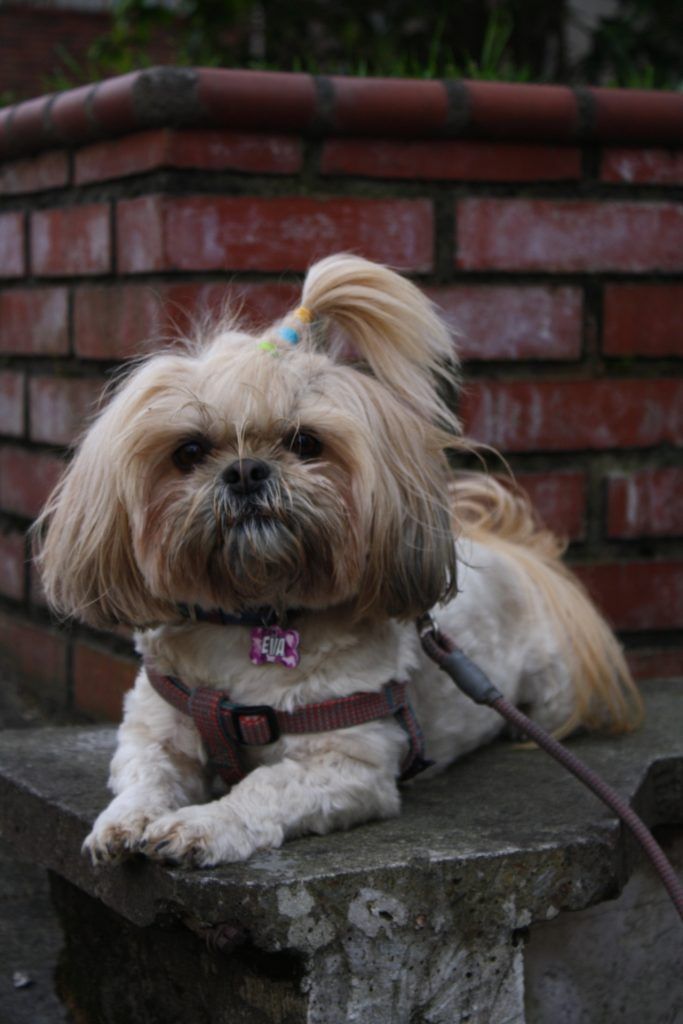Shih Tzu is a Chinese word that means “lion dog.” This small dog breed has a long and rich history as a companion of royalty and nobility. They are also known as the “chrysanthemum dog” because of the way their hair grows around their face, resembling the flower. Shih Tzus are playful, affectionate, and outgoing dogs that make great pets for people of all ages and lifestyles. They are loyal, loving, and eager to please their owners. They also have a distinctive appearance: a long coat that comes in many colors and patterns, a short face, and large dark eyes.
This article will teach you more about the Shih Tzu breed, including its history, personality, health, grooming, and training. You will also find some tips and advice on caring for your Shih Tzu and making them your best friend.
History of the Shih Tzu
The Shih Tzu is one of the oldest dog breeds in the world. They originated in China, where they were bred as companions for the imperial family and the Chinese court. They were highly valued and pampered by their owners, who often gave them lavish gifts and privileges. Some legends say that they were even guarded by soldiers and carried around in silk pouches.
The exact origin of the Shih Tzu is unclear, but some experts believe that they are a cross between the Lhasa Apso and the Pekingese. Others suggest they may also have some Tibetan Terrier or Maltese ancestry. The earliest records of the Shih Tzu date back to the Tang Dynasty (618-907 AD), where they were depicted in paintings and sculptures. They were also mentioned in documents from the Ming Dynasty (1368-1644 AD), where they were called “lion dogs” or “chrysanthemum dogs.”
The Shih Tzu was not widely known outside of China until the 20th century. In 1930, a pair of Shih Tzus was brought to England by Lady Brownrigg, the wife of a British military officer stationed in Beijing. She named them Hibou and Shu-ssa, and they became the foundation of the breed in Europe. In 1934, the first Shih Tzu club was formed in England, and the breed was officially recognized by the Kennel Club in 1940.
The Shih Tzu was introduced to the United States after World War II, when some American soldiers brought them home as souvenirs. The American Kennel Club (AKC) recognized the breed in 1969, and it quickly gained popularity as a pet and a show dog. Today, the Shih Tzu is one of the most popular toy breeds in the world, ranking 20th among all breeds in the AKC breed popularity ranking.

Personality of the Shih Tzu
The Shih Tzu is a friendly, cheerful, lively dog that loves being around people. They are very adaptable and can adjust to different environments and situations. They are not very demanding or yappy dogs, but they need their owners’ attention and affection. They are also very intelligent and curious dogs that enjoy learning new things and exploring their surroundings.
The Shih Tzu is a great pet for families with children, as they are gentle, patient, and tolerant with kids. They are also peaceful with other pets, especially if they are socialized from an early age. However, they may have a stubborn streak and a tendency to be possessive of their toys and food. They may also bark at strangers or other animals if they feel threatened or excited.
The Shih Tzu is not a guard dog or a watchdog, but they will alert their owners if something unusual happens. They are loyal to their family members and will bond closely with them. They may suffer from separation anxiety if left alone for too long or too often. They are best suited for indoor living, as they are sensitive to heat and cold.
Common Health Issues Affecting Shih Tzus
The Shih Tzu is generally a healthy dog breed that can live up to 15 years or more. However, like any other breed, they may be prone to some health conditions that owners should be aware of. Some of these include:
- Eye problems: The Shih Tzu’s large eyes are vulnerable to injuries, infections, ulcers, cataracts, glaucoma, dry eye syndrome (keratoconjunctivitis sicca), progressive retinal atrophy (PRA), distichiasis (extra eyelashes), entropion (inward rolling eyelids), ectropion (outward rolling eyelids), and cherry eye (prolapsed third eyelid gland(.
- Brachycephalic syndrome: The Shih Tzu’s short face can cause breathing difficulties due to narrow nostrils (stenotic nares), elongated soft palate (excess tissue in the back of the throat), collapsed trachea (weakness of the windpipe), and laryngeal paralysis (loss of function of the voice box).
- Hip dysplasia: This is a genetic condition where the hip joint is malformed or loose, causing pain, lameness, and arthritis.
- Patellar luxation: This is a condition where the kneecap slips out of place, causing pain, limping, and swelling.
- Liver disease: The Shih Tzu may be susceptible to liver shunt (portosystemic shunt), which is an abnormal blood vessel that bypasses the liver and prevents it from filtering toxins from the blood.
- Bladder stones: The Shih Tzu may develop stones or crystals in their urinary tract due to various factors such as diet, infection, and metabolism.
- Dental problems: The Shih Tzu’s small mouth can lead to overcrowding, misalignment, decay, and gum disease.
To prevent or minimize these health issues, owners should:
- Choose a reputable breeder who screens their breeding stock for genetic diseases and provides health certificates for their puppies.
- Take their Shih Tzu to regular veterinary check-ups, vaccinations, and deworming.
- Feed their Shih Tzu a high-quality, balanced, and appropriate diet for their age, size, and activity level.
- Always provide their Shih Tzu with fresh water and avoid giving them human food, especially chocolate, grapes, raisins, onions, garlic, and xylitol.
- Brush their Shih Tzu’s teeth daily or at least weekly with dog toothpaste and have them professionally cleaned by a vet when needed.
- Keep their Shih Tzu’s eyes clean and moist with saline solution or eye drops and trim any hair that may irritate them.
- Monitor their Shih Tzu’s breathing and avoid exposing them to extreme heat or cold or stressful situations that may cause respiratory distress.
- Keep their Shih Tzu’s nails trimmed short to prevent injury or infection.
- Exercise their Shih Tzu moderately according to their ability and tolerance and avoid overexertion or obesity that may worsen joint problems.
- Spay or neuter their Shih Tzu to prevent unwanted pregnancies, hormonal imbalances, or reproductive cancers.
Grooming of the Shih Tzu
The Shih Tzu has a long, soft, and silky coat that requires regular grooming to keep it healthy, clean, and tangle-free. Owners should:
- Brush their Shih Tzu’s coat daily or at least every 2 or 3 days with a pin brush or a slicker brush, starting from the ends and working up to the roots.
- Comb their Shih Tzu’s coat with a metal comb to remove any mats or knots that may form under the ears, around the eyes on the chest, or between the legs.
- Bathe their Shih Tzu once a month or as needed with a mild dog shampoo and conditioner, and dry them thoroughly with a towel or a blow dryer on low heat.
- Clip their Shih Tzu’s coat every 4 to 6 weeks with scissors or electric clippers following the natural contours of their body. Owners can choose different styles for their Shih Tzu’s coat such as:
- The show cut: This is where the coat is left long all over except for trimming around the feet and anus. This style requires more maintenance but showcases the beauty of the breed.
- The puppy cut: This is where the coat is cut short all over except for leaving some length on the ears tail head legs etc. This style is easier to care for but still looks cute and fluffy.
- The teddy bear cut: This is where the coat is cut short on the body but left longer on the head legs tail etc., giving them a rounder appearance like a stuffed toy. This style is also easy to care for but adds some personality to your dog.

Owners often accessorize their Shih Tzu’s coat with ribbons, bows, clips, etc., especially if they have long hair on their head that may obstruct their vision.
Training of the Shih Tzu
The Shih Tzu is an intelligent dog that can learn many commands, tricks, and behaviors if trained properly. Owners should:
- Start training their Shih Tzu as early as possible, preferably from puppyhood when they are more receptive.
- Use positive reinforcement methods based on praise and treats, and avoid harsh correction or punishment. Shih Tzus are sensitive and respond well to rewards but may become fearful or stubborn if scolded or hurt.
- Teach their Shih Tzu basic commands like sit, down, come, and stay using treats and hand signals. Repeat the commands frequently and consistently until their Shih Tzu understands and obeys them. Gradually increase the difficulty and duration of the commands, and practice them in different situations and environments.
- Take their Shih Tzu out frequently to use the bathroom outside and reward them for doing so. Shih Tzus are notoriously difficult to housebreak, so owners need to be patient and persistent. They should also crate train their Shih Tzu to prevent accidents indoors when they are not supervised.
- Socialize their Shih Tzu with different sounds, people, and animals from an early age to help them become friendly and outgoing. Shih Tzus are naturally sociable and curious dogs, but they may be shy or timid if not exposed to various stimuli. Owners should introduce their Shih Tzu to new experiences gradually and positively and avoid forcing them into situations that may scare them.
- Train their Shih Tzu from unwanted chewing when they are teething. Shih Tzus may chew on anything they can find when their teeth are growing, which can be harmful or destructive. Owners should provide their Shih Tzu with safe and appropriate chew toys and redirect them from chewing on forbidden items. They should also puppy-proof their home and remove any potential hazards or temptations.

Tips for Shih Tzu Owners
The Shih Tzu is a wonderful dog breed that can bring joy and companionship to any home. However, owners should also be aware of some challenges and responsibilities that come with owning a Shih Tzu. Here are some tips for Shih Tzu owners:
- The Shih Tzu is a small dog that does not need much outdoor exercise but needs mental stimulation and playtime. Owners should provide their Shih Tzu with interactive toys, games, puzzles, etc., to keep them entertained and prevent boredom or frustration.
- The Shih Tzu is a heavy shedder that requires regular brushing and grooming. Owners should brush their Shih Tzu’s coat daily or at least every 2 or 3 days to prevent mats and tangles. They should also clip their Shih Tzu’s coat every 4 to 6 weeks to keep it neat and clean. Owners can choose different styles for their Shih Tzu’s coat depending on their preference and convenience.
- The Shih Tzu is a brachycephalic breed that has a short face and a flat nose. This can cause breathing problems, especially in hot or humid weather. Owners should monitor their Shih Tzu’s breathing and avoid exposing them to extreme temperatures or stressful situations that may cause respiratory distress. They should also keep their Shih Tzu’s eyes clean and moist with saline solution or eye drops, as they are prone to eye problems due to their large eyes.
- The Shih Tzu is a loyal and loving dog that thrives on human attention and affection. Owners should spend quality time with their Shih Tzu every day, cuddling, petting, talking, etc. They should also avoid leaving their Shih Tzu alone for too long or too often, as they may suffer from separation anxiety. They should make sure their Shih Tzu feels secure and comfortable in their home, providing them with a cozy bed, a crate, toys, etc.
Where to Buy a Shih Tzu Puppy
Finding a Shih Tzu puppy is not as easy as it sounds. Shih Tzus are not very common dogs and are in high demand. According to the AKC breed popularity ranking, they are the 20th most popular breed out of 197 breeds in the US. This means that you might have to wait for a while or pay a premium price to get your Shih Tzu puppy. The average price of a Shih Tzu puppy from a reputable breeder can range from $500 to $2000 or more, depending on the puppy’s quality, pedigree, location, and availability.
So, where can you find a Shih Tzu puppy for sale? There are many ways to find a Shih Tzu breeder near you or online, but you have to be careful and do your homework before buying a puppy from anyone. Here are some of the best sources to find a Shih Tzu puppy:
- AKC Marketplace: The American Kennel Club (AKC) is the most famous and trusted kennel club in the US. They have an online marketplace where you can search for Shih Tzu puppies for sale from registered breeders who follow the AKC standards and code of ethics. You can also find useful information about the breed, the breeders, and the puppies on their website. This is one of the safest and easiest ways to find a Shih Tzu puppy, but you might have to pay more or wait longer to get one.
- Local breeders: You can also find local breeders in your area by asking around, checking online classifieds, visiting dog shows or events, or contacting local breed clubs or rescue groups. However, you should always be careful and do your homework before buying a puppy from an unknown source. You should ask for references, health certificates, contracts, guarantees, etc., and avoid any signs of scams or puppy mills.
If possible, you should also visit the breeder’s premises and meet the puppy’s parents and littermates. Look for a healthy, happy, and friendly puppy that matches your personality and lifestyle. You should also be ready to commit to your Shih Tzu puppy for life and provide them with proper care and love.

Conclusion
The Shih Tzu is a charming dog breed that has a lot of personality and charm. They are playful, affectionate, and outgoing dogs that make great pets for people of all ages and lifestyles. They are also intelligent and trainable dogs that can learn many commands, tricks, behaviors, etc. if trained properly.
More Dog Breeds
If you’re interested in learning about similar dog breeds, check out:
FAQ
Do Shih Tzu shed?
Shih Tzus do shed, but not as much as some other breeds. They have a long, silky coat that needs regular brushing and grooming to prevent mats and tangles. They also need to be clipped every 4 to 6 weeks to keep their coat neat and clean.
Are Shih Tzu hypoallergenic?
Shih Tzu are not hypoallergenic, but they may be suitable for people with mild allergies. They have a low-shedding coat that produces less dander than some other breeds. However, they still have saliva and urine that can trigger allergic reactions in some people. You should consult your doctor before getting a Shih Tzu if you have allergies.
Why Shih Tzu are the worst dog?
Shih Tzu are not the worst dog, but they may not be the best dog for everyone. They are playful, affectionate, and outgoing dogs that love to be around people. However, they may also be stubborn, independent, and possessive of their toys and food. They may also have health problems due to their short faces and large eyes. They need regular grooming, training, and attention to be happy and healthy.
How much are Shih Tzu puppies?
The price of a Shih Tzu puppy can vary depending on the breeder, the pedigree, the location, and the demand. The average price of a Shih Tzu puppy from a reputable breeder can range from $500 to $2000 or more. You should always do your research and ask questions before buying a puppy from anyone.
How long do Shih Tzu live?
The lifespan of a Shih Tzu can depend on many factors, such as genetics, health, diet, exercise, etc. The average lifespan of a Shih Tzu is 10 to 18 years. You should provide your Shih Tzu with proper care and love to help them live longer and happier.
























